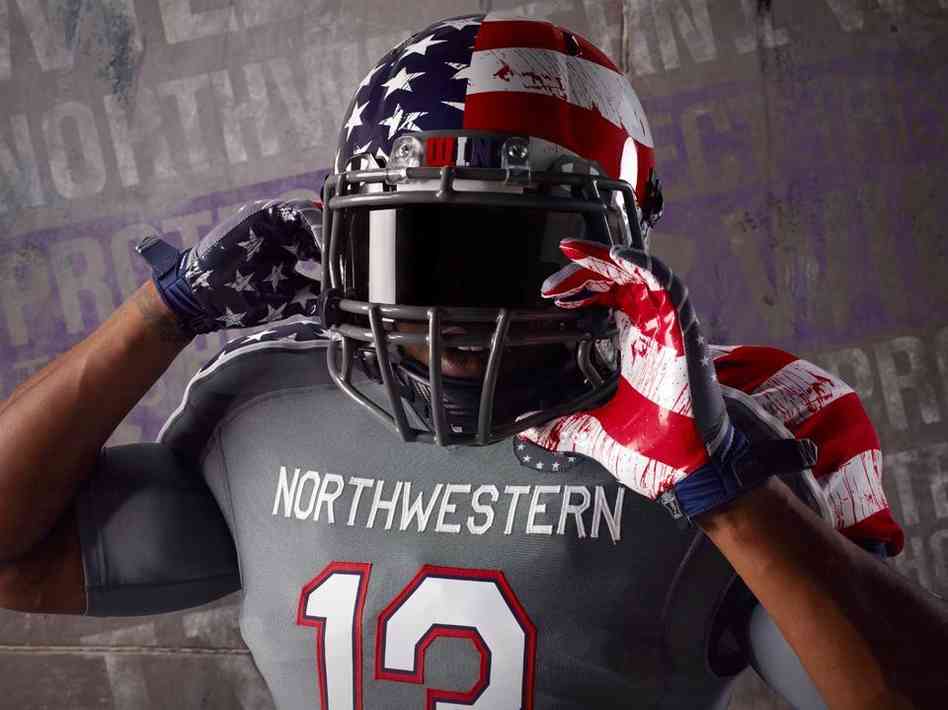It’s an exciting morning over here at Life of the Law. Zev Eigen, law professor at Northwestern Law, writes below on the question of student athletes unionizing, and our Executive Producer Nancy Mullane interviews him here.
Kain Colter is a senior at Northwestern University. He has been the co-captain of the school’s football team for two years now. He plays quarterback. How would he describe himself in relation to the school? Would he call himself a student attending a university to receive a college education? Or, would he call himself an employee of Northwestern?
That question will likely determine whether Mr. Colter and a group of athletes at Northwestern will be allowed to form a union under the National Labor Relations Act (“NLRA”). That is the federal law that says that only “employees” may form unions in the private sector.
Ramogi Huma is the president of the newly formed College Athletes Players Association. He is assisting Mr. Colter in his efforts along with the United Steelworkers Union in filing the petition with the National Labor Relations Board for recognition of the union. As Mr. Huma pointed out in a radio interview yesterday, the football players “work” for forty hours per week on football, are directed and controlled by the university, and they receive “compensation” in the form of scholarship funding directly tied to students’ playing ball. Those characteristics make them seem at least partially like employees, or at least student-employee hybrids. But the National Labor Relations Board has flip-flopped on the issue of whether another category of student-employee hybrids, namely, graduate students (who receive both an education and are directly paid for teaching classes) are primarily students who happen to work, or whether they are employees who happen to be students receiving an education. It’s not clear how the Board will rule on student-athletes like Mr. Colter who do not receive direct compensation like grad students do, but who receive scholarship funding, and are expected to play a sport, not teach classes. As I have suggested elsewhere, I think student-athletes have an uphill battle ahead of them.
Perhaps a more interesting question than how the law will characterize these student athletes is how the law should characterize them. The NLRA is a 1935 statute that regulates the relationship among unions, employees, and employers. It has not been substantially updated at all except in 1947. I think everyone can agree that a LOT has changed about how work is performed and structured in this country since then—most importantly, the law does not cover independent contractors and other categories of non-full-time work. In the ‘30s and ‘40s, these categories of workers were the exception, and now they are becoming more of the rule; more workers now are part-time, temporary workers, freelancers, and independent contractors. It would make sense to update the law to extend coverage to categories of work that now dominate the employment landscape. If for no other reason, this would merely extend protections of the NLRA to the approximate percentage of the workforce that the law initially covered when it was passed.
Don’t hold your breath for change in labor law, though. This is the most polarized area of law one can imagine. There are pro-labor groups, and there are pro-management groups. Both groups have made proposals to update the laws, but these have been dismissed outright as too partisan by the other side. This is an unfortunate form of what negotiation scholars refer to as “reactive devaluation”—when one assumes that anything proposed by one’s counterpart is automatically not in one’s best interest. The extreme dichotomization is a perfect storm for legislative stalemate. Everyone assumes that the other side’s proposals are partisan, and therefore nothing gets changed, and everyone is made worse off. I have discussed this problem in two articles—here, and here.
My hope is that we are headed towards a tipping point. The law’s intentions to protect a collective employee voice and to promote “labor peace” will become so attenuated that it would make sense to either scrap the law entirely or amend it to bolster its modern relevance. Efforts like the Northwestern football players, and others, like mixed martial artists, raise awareness of the need for laws to be modernized to reflect the more fractured, non-traditional forms in which many employment relationships now occur.
Zev J. Eigen is Associate Professor of Law at Northwestern University School of Law.
Photo: Facebook.com/UnderArmourFootball









